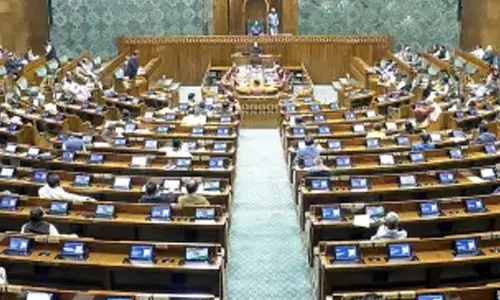Will not tolerate reduction or restriction in the powers of waqf boards: AIMPLB
Share :

The All India Muslim Personal Law Board (AIMPLB) on Sunday asserted hat it will not tolerate reduction or restriction in the powers of waqf boards.
In a press statement, the AIMPLB held that any change in the Waqf Act, 2013 which alters the nature of waqf properties or makes it easier for the government or any individual to "usurp the same" will not be acceptable.
It said that the Centre wanted to change the status and nature of the Waqf properties through about 40 amendments in the Waqf Act, 2013, so that their possession becomes easier, referring to reports.
"According to reports, a bill of this nature may be introduced in the Parliament next week. Muslim Personal Law Board clarifies that waqf properties are donations made by Muslim philanthropists dedicated to religious and charitable purposes and the government has only enacted the Waqf Act to regulate them," the press release said.
Further, the AIMPLB said that the Waqf Act and waqf properties are protected by the Constitution of India and the Shariat Application Act, 1937, and the government cannot make any amendment that would change and alter the nature and status of these properties.
"Muslims would never accept any amendment to the Waqf Act that would change its status. Similarly, interference with the legal and judicial status and powers of Waqf Boards will not be tolerated," it added.
Earlier, AIMIM President Asaduddin Owaisi also alleged that the Modi government wants to snatch Waqf properties from Muslims and interfere with the freedom of religion through proposed amendments to the Waqf Act.
The NDA government under Prime Minister Narendra Modi is all set to make amendments to the existing Waqf Act, thereby aiming to restrict the expansive powers of Waqf Boards to classify properties as 'waqf assets' and assume control over them. Sources told IANS that the Cabinet approved around 40 amendments to the act on Friday.
The amendment bill is anticipated to be presented in Parliament next week. Should it pass, it will represent a major overhaul in the management and regulation of waqf properties in India, bringing the system in line with practices seen in other Islamic countries where no single entity holds such extensive powers, said sources.

















